|
5/2/2019 Poetry by Carla Halpin Mayastar CC Water Under the Bridge Don't let me see how your bones have mended or let me count new freckles or let me see how the wrinkles have eroded your furrowed brow Don't tell me the details of your meanderings for disappointment and betrayal bubble near But somehow know that I can hear you here So, when the thunderous rapids drag you down and leave you stranded. I will care that you are grounded You're a crisis, but I never flinched Now I stand on my side of the bridge You're a whirlpool that coils in and pulls down you foam and hiss and spit Sometimes, meet me here And I will listen I will listen Poem for the Makeup YouTuber Morning ablution Abrasives and creams At least an hour Basic girl routine *Applies moisturizer in circular motions* Let your fingers now spread into your hair Find tense areas and hang out there *Segments face into shadows and highlights* Hey contour queen! I see your big blush brush Look away now, see it also feels luxurious *Selects the perfect plum shade to match mood* Morning lipstick applied expert briskly Try closing your eyes, see how the oils glide on slickly Remember, Perfect Insta pouts Look better when your eyes register What you’re smiling about Time is the Most Used Noun He swings his wasted legs out of bed and makes a precarious dash for his chair It’s really isn’t like Dad to spend so much time there Through the medication fog he grins at the news laughing at silly humans and their self-important views He cuts a fuller figure now a little grey but broad shouldered, posture straighter We stride the streets together putting the world to rights and judging all the neighbours Walking serves to brainstorm his complex dealings we play the parts we always do swapping stories of his business and my feelings Its Christmas time, Dad’s in charge of carving the turkey Mums bought him a bell for gin he’s ringing it all the time and laughing so hard at the ridiculous gift that he’s set off mine As he wipes the tears from his face eye rolls from mum start off another round, we lower to the ground uncontrollably making spluttering sounds The hall is emptying out of revellers as my hero arrives I’m a bit old for this now, calling for a chaperone so late at night But heartbreak hurts no matter your age He says it’s going to be alright I’m talking to him at the bar eighteen and full of it but I can tell he’s not quite listening Behind him a secret is being spilled his ears are pricked his eyes glinting I can’t believe my Dad is watching! A tiny figure in the stalls Whilst I trundle up and down doing lengths of crawl We dropped him at the station yesterday to join the other men in suits He’s obviously more important than I ever knew It’s really scary when you’re little and you want to get on a massive horse Luckily my dad’s invincible and he’ll run alongside me of course Sometimes daddy does the stories instead of mummy He does the voices differently I think he’s very funny I like it when he’s in the house everyone feels stronger He helps out mummy with her chores and scares away the monsters 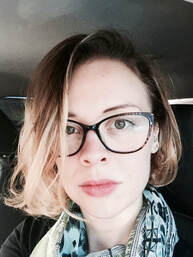 Carla is an ex-pirate, long time secret poet and fledgling writer. Previously a community nurse in Brighton UK, she now lectures on health in further education. Her hunger for curious human stories has driven her into all sorts of situations that she's daring herself to write about. 5/2/2019 Poetry by Amy Shimshon-Santo Mayastar CC All the Things (He Never Said) 1. zenith television torso old carts and boxes something died here. loitering things he would not throw out carpeted his skin with lumps and splotches I pressed down on my jugular vein to stop my heart from speaking his fishhook acknowledgement wasn’t enough to plug the rickety raft my fat eyelids sank first in the salt water then his ribcage. mildewed hammered from doors. shut I sat across from a different man’s torso listening. watched him bob up and down in all the things he’d never said 2. when we split the deadwood I posted a picture of him smiling on Instagram. zoomed in. content. I wanted it archived there as evidence glistening eyes. deep satisfaction that joy happened, days before our continents broke and all his silence came spilling out 3. I buried our blueprints beneath the mattress so no one else could see a storm raged quietly inside my head. my chest shook the windows and doors lifeless dreams filled with wind rippled on mangled trees I watched them sway. Ghosts slow sorrow came knocking hungry for my flesh. it wanted proof to fill disappointments mouth-hole reeds swished aside a whittled wooden figure fell out landing hard on the floor — conclusion 4. I don’t have words for reappearance so I study the art of open hands moonlight melts inside I’m a splinter in a crowded box of teeth. departures leave you naked babbling with shadows I peel open an orange from the garden and it bleeds all over my hands Piñata (Effigy) the heart’s soft center dark pool of night. stench-wood longing. my body still tender melting. secular time: after his disappearance in the dappled shade of a spider gum tree. I clutch a long wooden stick head coiled into my chest heaving breath. I want to whack something but there’s no target no aim to take. the flimsy toy dangles. inanimate effigy it’s form spread open like the feathers of a dead raptor heavy paper mache carcass circles round-and-round on its rope. belly emptied hard candy spilled. insects will come gather it up. invade their paper wrappers the remains of a celebration. quiet destruction. punched in piñata. struck hard. bam-bop-bam-bop-bam busted-open with a bat loose candy strewn on the dirt guests long gone. only entrails no children to scatter and hunt for sugar call the vultures. I’ll be here waiting by the spinning rope shooing away hummingbirds beneath its silent branches when we split. the world sent my body 23,701 miles away to be. see other worlds I returned to a graveyard of a former life. got down on my hands and knees with a small paper bag and scraped the earth for sweetness What’s Time Anyway? Your mornings are someone else’s night shifting along the circumference of the globe Our belief in time is made of air, a cloud of condensed water vapor that won’t hold your weight. If time is a made up thing, how can I unlatch myself from it? So basic. I wake and ask, what time is it? When I sleep, Is it time for bed? Time is a kind of pottery, made of earth and hubris, that will break. First of my family, born in LA a place where Simon Rodia built mosaic towers from broken dishes he collected from his neighbors Then he buried his car beneath house, and made a cement ship that would never sail back home to Italy without an earthquake We try to be here and with our ancestors at the same time I tell the next generation, time is real These times are yours. In other words, I lie And for good reason. I want there to be a future My children bang a drum and paint the walls yellow They believe in time. I’ll never say a word otherwise However powerless we may feel. We are it The future’s only hope. I wonder what the future thinks of us our destructive, polluting habits Foolish children, grown into stories I’ve read books by people who are dead Books, leftover stuff, like my dad’s suspenders or his polka dot bow tie I can’t find. But I see him in the mirror. His face in mine. My face becoming his Now that I’m in mid-life, I no longer believe in leaving a mark. I understand that I am an accidental accumulation. Cumulonimbus The answers may lie in the smallest things Things I’ve overheard. Witnessed. Instigated An inspirational glance. You were a dancer I remind myself. Flow. You know how to move off balance. I let go 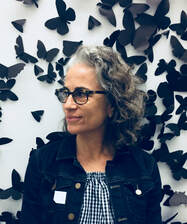 Amy Shimshon-Santo is a poly-lingual poet and essayist with immediate family on three continents. She’s been nominated for a Pushcart Prize in creative non-fiction (2017), Best of the Net in poetry (2018), and was recognized on the National Honor Roll for Service Learning. Her poetry collection Even the Milky Way is Undocumented is forthcoming with Unsolicited Press (2020). You can read her poetry Yes Poetry, Zócalo Public Square, Anti-Heroin Chic, Lady Liberty Lit, Awkward Mermaid Lit Mag, Rag Queen Periodical, Rose Quartz Journal, Full Blede, Spectrum, and her essays in SAGE Publications, Entropy, Public, Tiferet Journal, UC Press, SUNY Press, and Critical Planning Journal.
Photography by Katelyn Kopenhover
The great Steve Forbert once said; "I relate to the audiences and they know me. It's pretty real." Shlomo Franklin's authentic stage presence reminds one of Forbert's. It feels like sixty years ago. It feels like Dave Van Ronk, Ramblin' Jack, Washington square park soul-searching-we-shall-overcome sing along's in the aching city of crushed and beautiful story-lined faces. Like the long lost and weary voices of Bleecker Street now all but ghosts lingering in from a half remembered dream. Feels like borrowed guitars and crashing on floors and getting by with a little help from your friends and your strangers. Each of Franklin's songs feel a bit like that old friend that you haven't seen in years, but when you do, it's like you pick up right where you left off, as if no time at all had gone by. But time has gone by. As Franklin himself says, you've got to be able to put enough distance between you and your experiences before you can find the truth in them. "Sometimes it arrives as a poem and sometimes it arrives as a song. I like the songs more cause they have a longer shelf life." "No, that's not true," he adds. "They don't." Franklin is Ginsberg with a Guthrie heart of gold. He is wise beyond his years, authentic, born to tell the story. But more than that, he is kind. The searching kind, the suffering and learning from suffering kind, the kind kind. "I'm not trying to be the new anybody," Forbert also once said. Those words are the feeling you get when you listen to Apt 16. A record where the journey, no matter its many twisting paths, always points back home toward the terribly beautiful human heart. James Diaz: You're about to release your debut full length album, Apt 16. Tell us about it, the writing, the recording, the inspiration - people, places and things, the collaborations, the touring, the heart and soul of it. Shlomo Franklin: I only write songs because I’m desperately trying to capture a place and time. I’ve lived through certain experiences and no matter how much fun or how painful they may have been, I still find myself overcome with a desire to paint a picture of them. It can be the color of a lonely evening in Philadelphia when the moon was big and the night was cool and I had a long phone call with an old friend that I hadn’t talked to in a while. Maybe they’re living in Alaska and going through a lot and they tell me about the northern lights, the brightness of the stars in their little corner of the sky and then maybe they speak of a mutual friend that hasn’t crossed my mind in a while. These things tend to weigh on me, they inspire and excite me too! I’m a sucker for nostalgia because the past can be indescribably beautiful and perfect. Looking back has little to do with the reality of a memory. It has a lot more to do with the impact of an experience and how it unfolds over the years, how it stands the test of time. My new album ‘Apt 16’ covers such ground. I lived in a few places in New York City when I was just eighteen and nineteen and this album harvests a lot of the light and darkness that I used to walk through. The lovers I had, the people I was lucky enough to know well, the corner deli on avenue A I used to frequent, the barber shop I never entered but always looked into through the large yellow windows, the small cafe where I used to drink hot chocolates and try to read James Joyce, the same cafe where I’d later perform my first few songs at. This album chronicles some of those spots, a few of those memories. JD: A lot of your songs deal with love, falling into and out of, hearts breaking, hearts overflowing. I think love is everywhere, sometimes two people, sometimes a whole nation, (good love/bad love) small acts of kindness, the wild outdoors. Do you see parallels in love that move beyond romantic forms into the universal and back again into the smallest, perhaps most powerful, of forms? SF: Absolutely! I think most of my breakup songs are actually about the passing of time. They’re about having to say goodbye to your yesterdays. I can’t be too sure but I believe a lot of my writing tends to be a sort of mourning of the passing of time. The tick of the heavy clock that echoes through all our homes. It’s on every one of our walls. A lot of my songs are remorseful about not being able to possess the past that you used to be inside of. The minutes you used to dwell amongst. There’s lots of hope in these sort of songs too. They guarantee you a certain level of beauty and significance, no matter how mundane the situation may be. JD: What have you learned since we last talked, about life, music, love, family, friends, poetry, pain, happiness? Where is your heart at these days? SF: I’m a lot more patient than I used to be. I’m learning to say no more often, especially if my gut is telling me to say no. I’m learning about the long road and how desperately I want to walk it. I think the whole music industry is geared towards the short game, the passing moment. Everyone wants you to blow up and go viral but I’ve had friends who’ve gone viral online and they can’t even sell as many tickets as I can. I’m learning to stick to my guns, follow my convictions. I will not compromise so I can fit in to some fad so people can easily digest me and then shit me out like diarrhea. I want to be the kind of food that makes your life healthier and more fulfilling. I do not want to be something flashy and oily, something you throw down your throat and regret the morning after. My albums are going to be organic, farm to table, grass fed, locally sourced, cruelty free, free range, healthy albums. JD: What are the albums and who are the songwriters that you cannot get out of your head these days? Who should we be looking into, with our ears and hearts wide open? SF: The new Felice Brothers album, Undress, is a masterpiece. It’s a truly beautiful record. If you wanna know what the Catskills sounds like then listen to the Felice Brothers. One of my favorite bands, Cage The Elephant just released a beautiful album called Social Cues. It’s a consistent body of work that lives strongly up to their previews four records. I’ve been listening to Tony Bennett and Frank Sinatra a lot too. Two greats that were masters at interpreting and embodying a song. To truly inhabit a song is one of the rarest forms of performance these days and it’s something I strive to do, it’s a trick I’m slowly learning to pull off. JD: What's next for you? What does your tour schedule look like for this album? Any new poems, new songs percolating? SF: I’m pretty much booked almost every weekend for the next four months. I’m not sure how it happened but I’m going to be touring around the Catskills mostly but I’ll get to Canada and New England too. Maybe I’ll even make it to England one of these days, who knows. I’m extremely inspired to be recording and writing these days but I’m working hard to also appreciate what I’ve already done so hopefully the next few months will just be focused on sharing the songs from my new album and making sure that everyone I perform for can listen to the album whether on Spotify or with a physical CD or whatever. I just want to get the songs to the people who need them most. There’s a good chance I’m going to put together a live band to play with more consistently as well but for that to happen, fate will have to pull its own weight. Also I just want to say that I absolutely love reading everything you guys publish on anti heroin chic. It’s sort of a Mecca for underground poets and I’m truly grateful that a blog like yours exists. Visit www.shlomofranklin.com/ 5/2/2019 Poetry by Charlie Baylis Paul Simpson CC snow fox ten winters before the house where thirteen ten four by four all the gravel under snow begins to sing pretty flower babies i pawn to pay for sugar does the routine rearrange the form truffles full of soot dust up the nose soft core planets i was born dead carmen electra swung on the swing with my sister we were so bored by carmen we didn't say anything we drank her blood every good friday every palm sunday ghosts in our notebook chinese burns in the sweatshop rooftop gardens my sister’s hands slowly detaching the plane from the airplane coming up on a soft core planet  Charlie Baylis is from Nottingham, England. He is the Poetry Editor of Review 31 and Assistant Editor of Broken Sleep Books. His poetry has been nominated twice for the Pushcart Prize and once for the Forward Prize. He spends his spare time completely adrift of reality. Cat_Fung CC The Mirror Explains Things To Me This is just another interpretation of the self. Bedroom walls reflect the dreams of your childhood and sullen memories. Old diary entries reflect all the different girls you used to be. This is self-reflection. You’ve forgotten how loved you felt being held in your own arms. Softly dancing alone in your room and refusing to surveil the details of your body, this is self-connection. Sometimes the lights flicker when you turn on the blow dryer, sometimes the synchronicity of the light and your hand is other-worldly. This is self-inception. Your head is filling up with hundreds of thoughts and hundreds of voices but none of them are your own. This causes the self’s disconnection. Most of the time, you love yourself the less you are, restraining the better things from your body, restricting and calculating till nothing else remains. This is self-neglecting. I know you feel it’s easier playing the role of the hollow girl, the malleable modern myth. Those days you wish to disappear, never acknowledge another or your own reflection. And some days you don’t want to describe the emptiness, to read the words aloud. You see me as the monstrosity in the corner of your room. I am more than just your reflection. I am glass, a mirror of you, your number one girl, the one always watching you. Trying to be your selfless crusader, always listening, waiting softly. This is self-reflection. 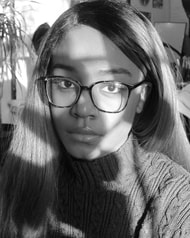 Kailah Figueroa is a young poet and visual artist. Her poetry has been published in The Loud Journal and is forthcoming in Royal Rose Magazine. You can find her on Instagram and Twitter @KailahFigueroa. Between Your Every Breath “And it is in dying that we are born to eternal life.” — St. Francis If you would not be like a ruined monk set up your cell within the hinge between your every breath. Overcome the dread of death. Cliff divers learn the sign to leap, low point in the flow and ebb of waves when black bare rocks stare back. To the novice, wisdom intimates annihilation. It is, instead, gateway to consoling, unconsoled; to understanding while misunderstood; to loving when no loving arms are there to hold, only to release you to eternal life. 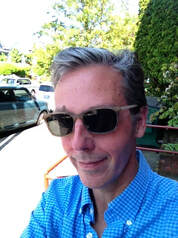 Leland Seese and his wife live in Seattle with a revolving cast of foster, adopted, and bio children. His poems appear in Juked, The MacGuffin, The Christian Century, and many other journals. Making Peace with the Wolves: An Interview with Nancy Reddy Nancy Reddy is the author of the book Double Jinx (2015) which was selected by Alex Lemon as a winner of the National Poetry Series, and the chapbook Acadiana, which was the winner of the Fall 2016 Black River Chapbook Competition. She has poetry appearing and forthcoming in Blackbird, Tupelo Quarterly, 32 Poems, and elsewhere. She is currently an Assistant Professor of Writing at University in Southern New Jersey, teaching Writing and First Year Studies. Reddy’s book, Double Jinx, tells of childhood and coming-of-age that is relevant for young women and a variety of readers. Each poem gives attention to the struggle of adolescence and facing our own monsters. From Cinderella to Little Red Riding Hood, Reddy’s poems bring fresh perspective and life into classic fairy tale characters, using them to help distinguish and identify something that has become most pertinent today: our identities as individuals. At the time of its publication in 2015, Double Jinx has become an essential piece for readers—especially young women—encouraging them to be cunning, strong, and above all, understanding of the world as they grow into. Turnea: One of the many things that I enjoyed about Double Jinx was how there was a myriad of fairy tale allusions and settings of the woods. Readers see this in “Our Wilderness Period” and “Cinderella Story”. What do fairy tales and the woods mean to you, not only as a writer, but from an individual standpoint? Reddy: I’m especially drawn to the transformative aspects of fairy tales. Because the book is so much about adolescence, drawing on fairy tales (and mythology and religion, in other poems) allowed me to think about my own personal experiences in light of bigger cultural narratives. And many of the poems in the book rewrite fairy tales and other stories from a different perspective, like “Cinderella Story,” which re-examines Cinderella from the stepsisters’ viewpoint, and “Little, Red,” which thinks about the mother’s absence in the original Little Red Riding Hood. D.T: With regards to Double Jinx’s structure and line endings, the parsed lines and enjambments work beautifully for each poem. For example, “Frontier Thesis” really keeps the enjambments and parsed lines consistent, which is extraordinary. What was the intention behind the line endings, and was there a different form you considered while writing these poems? N.R: The magic of enjambment! Though of course I’d learned about different kinds of linebreaks in my undergrad coursework, it was my MFA friend and classmate Brittany Cavallaro whose work showed me how much work linebreaks can do. In Bri’s work, linebreaks often double the meaning – so that a line has one meaning when you read to the break, and then when you follow the turn, that meaning is doubled or contradicted or complicated in some way. (You can see this in her poem “Tuesday Night at the Illinois State Fair,” for example.) In terms of process, I draft longhand, usually just in long chunks. Drafting that way allows me to be more flexible in terms of how I think about line breaks – if it isn’t part of the poem from the first draft, I can play around with it more as I revise and as I transfer the draft to a computer screen. D.T: There are many wolves in the book; personally, I found the wolf in “Little, Red” and “Genealogy” to be both compelling and unforgettable. It reminds readers that, in life there are people who symbolize these wolves, those who have caused them harm or trauma. How does one overcome or find closure with these people/wolves? Does one ever? N.R: Here’s the thing about wolves: wolves are distinct from dogs because they can’t fully be domesticated. I’ve had – probably lots of us have – wolves in my life, people who seem like they’re tamed, but who aren’t ever going to be fully reliable or fully present. (And I think our culture is more likely to let men turn into wolves, for whatever that might be worth.) For me, writing has been a way to make peace with those wolves, and to have some measure of compassion for what it would be like to be a wolf trying to live among humans and how sad and lonely that might be. (And a note about the father genealogy poem: it was much longer and had a whole thing about squirrels that wasn’t quite working so I cut it like crazy then left it that way sort of on a dare. It turns out my father doesn’t much like that poem, I don’t think. But I stand by its accuracy.) D.T: Since Double Jinx’s publication, a lot has happened in the world. From the rise in the Me, Too movement, to the election, so much has changed. There are so many new heroes and villains that have emerged. Do you have a recent individual that has inspired your work? In other words, who or what is your muse? N.R: You’re right – the world really does feel so different now than it did in 2015. For me, personally, the biggest change is that I have two kids now, the youngest of whom was a newborn when I finished the oldest poems in Double Jinx. They’ve shaped my writing in ways I couldn’t at all have anticipated – their wonder at seeing the world, where everything is new, has helped me to see so much with new eyes. D.T: For young female readers and writers out there, what is one thing you wish for them? N.R: Two ways of getting at the same idea: A friend told me recently that she’d been able to get a big anthology together (including lots of famous poets and a contract with a university press) primarily through “audacity and heart.” I’ve been trying to channel that spirit as I start some new projects that feel scary to me. And something I have written on the bulletin board above my desk, from an interview writer Alison Roman did: “If you’re afraid to do something bad, you’re never going to do something new.” Dominic Turnea is a senior creative writing and marketing student at Ohio Northern University in Ada, Ohio. He is the co-editor in chief of Polaris Literary Magazine and the Vice President of Ohio Northern’s Sigma Tau Delta chapter. He has been published in Polaris, and has published several online articles for The Odyssey Online. He currently lives in Garfield Heights, Ohio. 5/2/2019 Handholding by April HannaHandholding Boardwalkers Hard talking New Jersey Folk with diner leftovers Hanging in a plastic bag. He doesn’t like the boardwalk Because when the majority of the People are walking the opposite Way He feels like he is running back into A crime scene All over again. 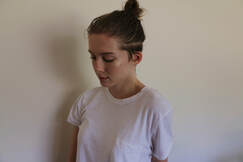 April Hanna is a recent graduate from Ramapo College of New Jersey majoring in communication arts with a writing concentration. Born in May (not April), her work focuses on the inevitable humor that exists within the human experience. April is also an avid supporter of the Oxford comma. 5/2/2019 Poetry by Lee Patterson metal-dog CC
From I get sad it’s dumb believing in sound. a light moan, wind against the sliding door, a good morning hymn from the finch in the birdhouse I never put up but somehow just appeared. I am leaving myself to find you. I am looking under graves, in the produce aisle of food lion, behind every closed door. I can only hear what I can’t see: a shooting in parkland, a shooting in jacksonville, an explosion followed by another explosion, parents yelling in whispers in their upstairs bedroom & then finally, a child falling asleep below. Lee Patterson's poetry has appeared or is forthcoming in isacoustic*, Ethel Zine, Eunoia Review, and The Airgonaut. His chapbook, I get sad, is forthcoming from Ethel Zine in late 2019. 5/2/2019 Poetry by Kate Garrett Kate Garrett is the editor of Three Drops from a Cauldron, Picaroon Poetry, and Bonnie's Crew. Her poems have recently appeared or are forthcoming in Kissing Dynamite, After the Pause, Déraciné, The Cabinet of Heed, and others. She is the author of six chapbooks, and a seventh, To Feed My Woodland Bones [A Changeling's Tale] is forthcoming in September 2019 from Animal Heart Press. Her first full-length collection, The saint of milk and flames, will be published in April 2019 by Rhythm & Bones Press. Born and raised in rural southern Ohio, Kate moved to the UK in 1999, where she still lives in Sheffield with her husband, five children, and a sleepy cat. Twitter @mskateybelle / www.kategarrettwrites.co.uk |
AuthorWrite something about yourself. No need to be fancy, just an overview. Archives
April 2024
Categories |
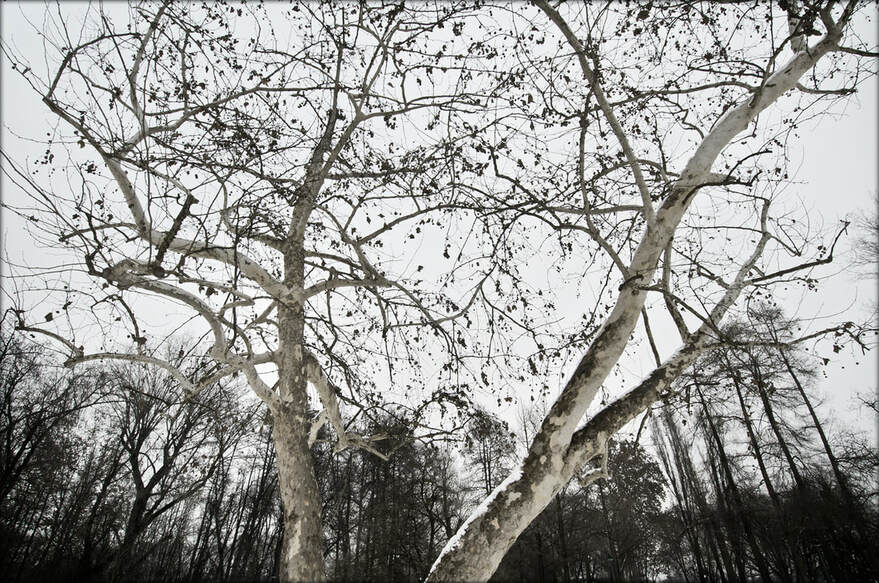
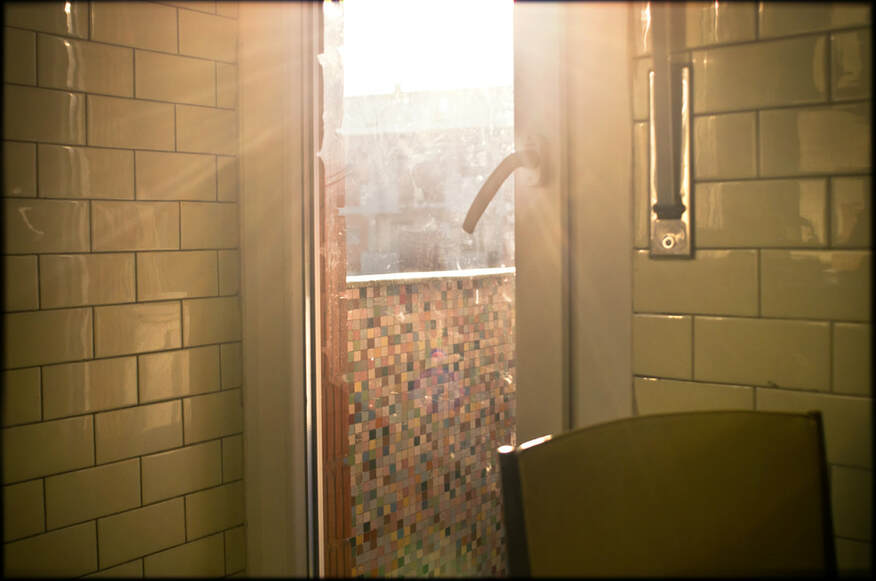
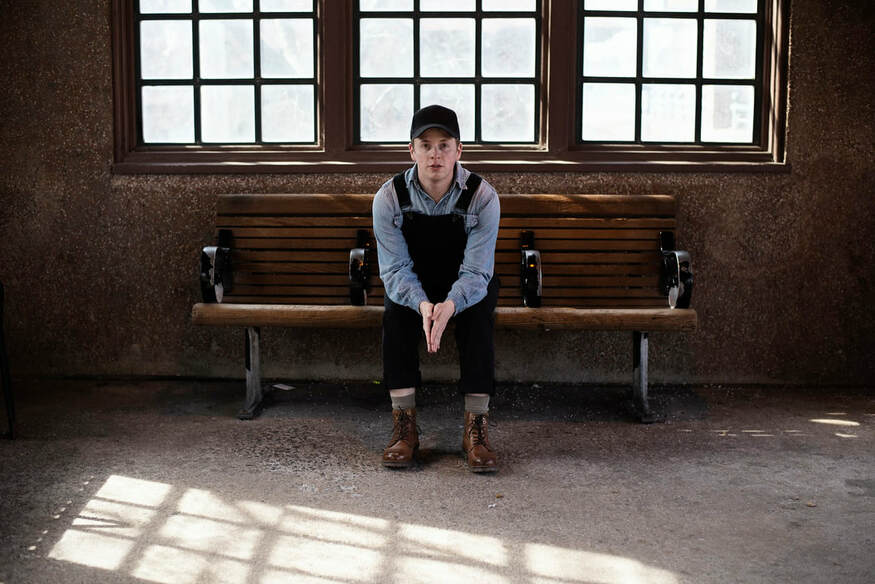
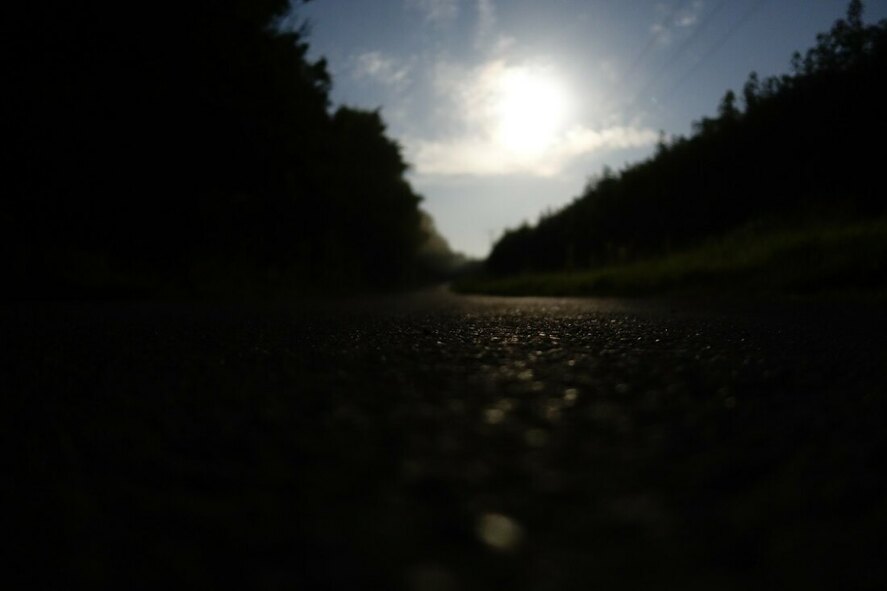
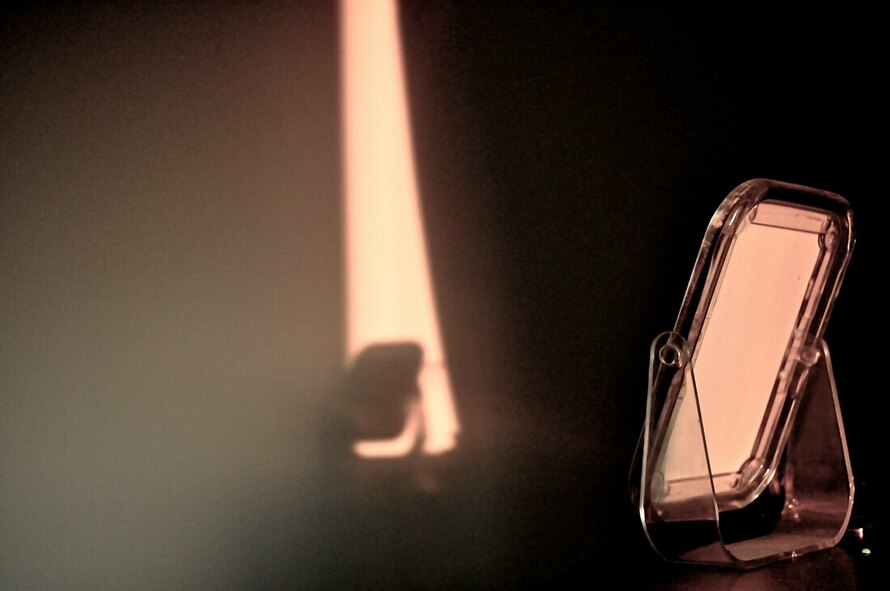
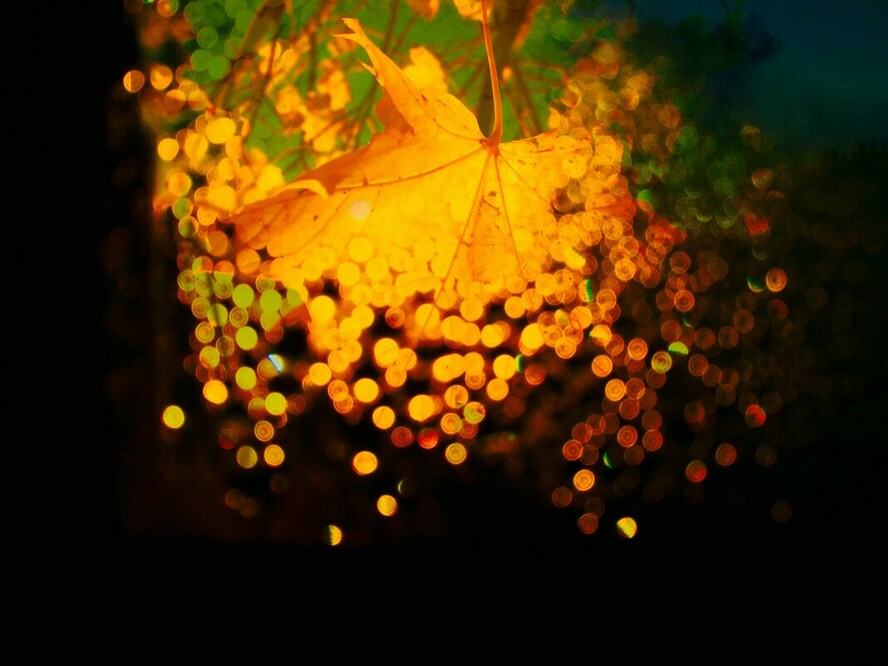
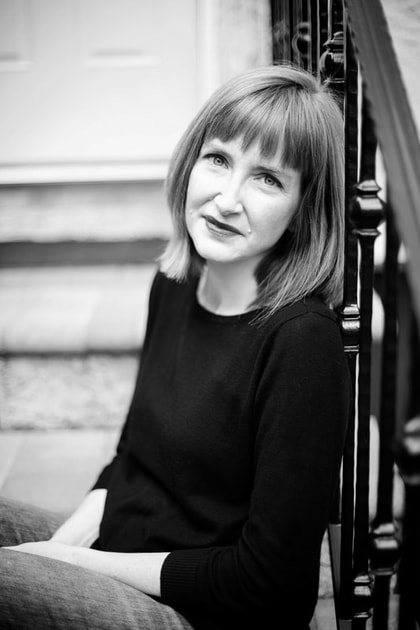
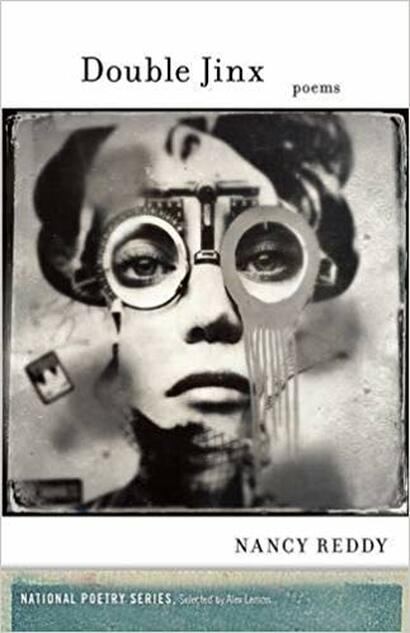

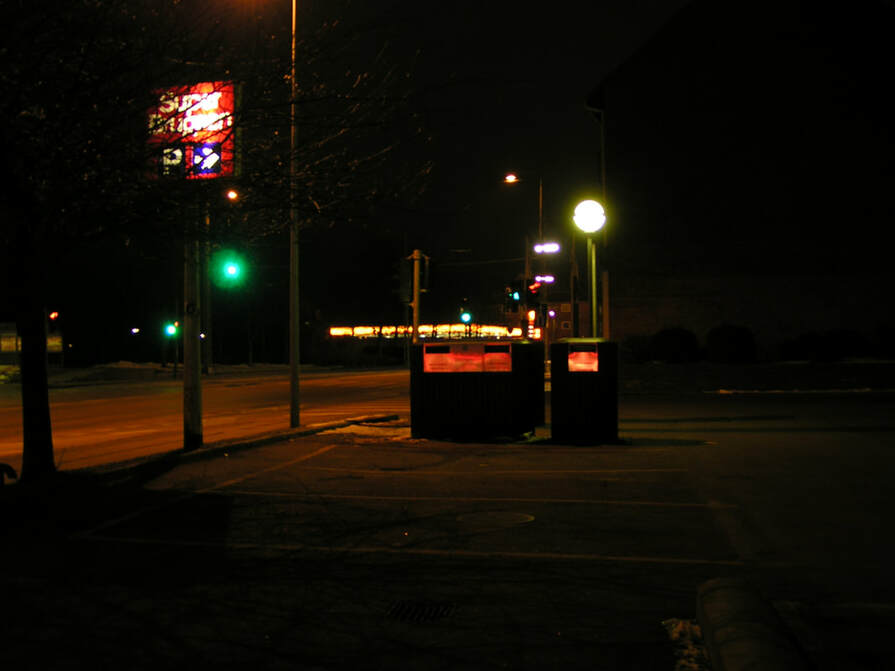
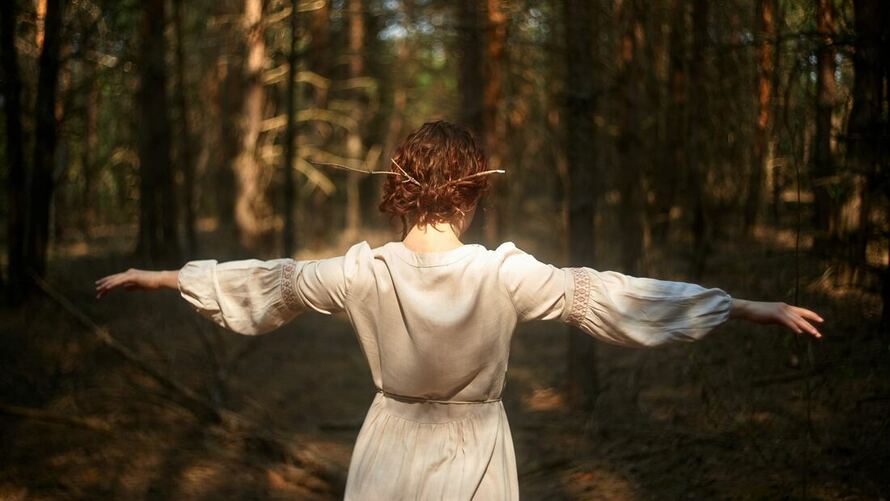

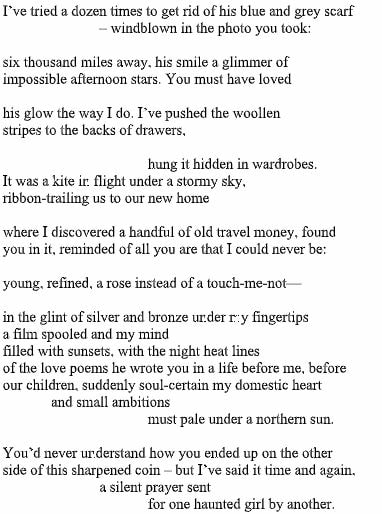
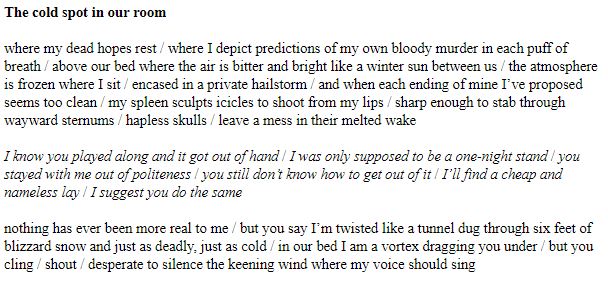
 RSS Feed
RSS Feed
